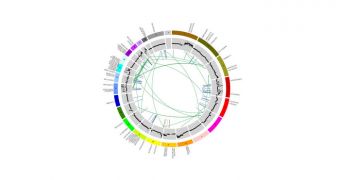Washington University in St. Louis (WUSL) School of Medicine (WUSM) investigators say that a new analysis of DNA in patients suffering from advanced forms of breast cancer has revealed a number of molecular signatures that can be used to predict how the condition will react to treatment.
This is very important since many women suffering from this condition are put through estrogen-lowering therapies, which are meant to shrink the largest tumors before surgery. However, in many cases, the damaging treatment is unnecessary, and the new findings will help predict such instances.
The DNA analysis will help oncologists figure out which of the women are likely to respond well to treatment. For the others, estrogen-lowering therapies will not even be attempted, so doctors will be free to focus their efforts on other objectives.
Aromatase inhibitors, the molecules used to lower the amount of estrogen in the body, were found to produce a series of mutations that can reveal whether or not a woman would benefit from treatment.
Each of these mutations, the team adds, is related to various aspects of tumor developments, such as how likely they are to grow and spread at fast rates. The WUSM team worked with scientists at the Siteman Cancer Center and The Genome Institute for this research.
Details of the work were published in the June 10 advanced online issue of the top journal Nature.
“This is one of the first cancer genomics studies to move beyond cataloging mutations involved in cancer to finding those linked to treatment response and other clinical features,” explains researcher Elaine Mardis, PhD, the senior author of the study, and the co-director of The Genome Institute.
“If our results are validated in larger studies, we think genomic information will be one more data point for physicians to consider when they select among several treatment options for their patients,” the expert goes on to say.
The investigation was conducted on women suffering from stage 2 or 3 estrogen-receptor-positive breast cancer. A group of 77 post-menopausal females provided researchers with DNA samples, which the team then had analyzed.
“Rather than give aromatase inhibitors to women with [unfavorable] mutations knowing they are unlikely to be effective, these women may benefit from immediate surgery followed by chemotherapy,” concludes WUSM expert and lead study author, Matthew Ellis, MD, PhD.

 14 DAY TRIAL //
14 DAY TRIAL //